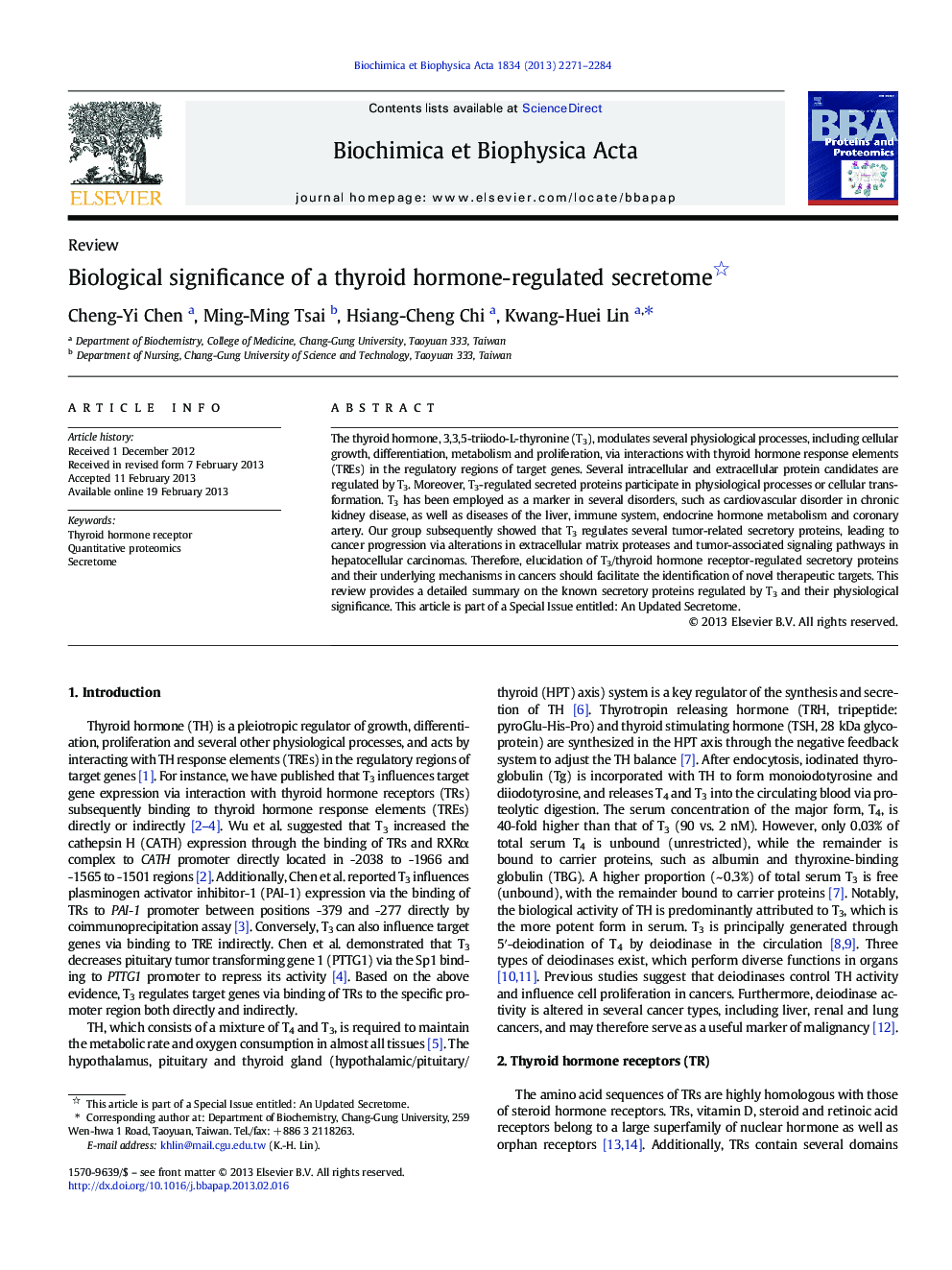| Article ID | Journal | Published Year | Pages | File Type |
|---|---|---|---|---|
| 1178460 | Biochimica et Biophysica Acta (BBA) - Proteins and Proteomics | 2013 | 14 Pages |
The thyroid hormone, 3,3,5-triiodo-L-thyronine (T3), modulates several physiological processes, including cellular growth, differentiation, metabolism and proliferation, via interactions with thyroid hormone response elements (TREs) in the regulatory regions of target genes. Several intracellular and extracellular protein candidates are regulated by T3. Moreover, T3-regulated secreted proteins participate in physiological processes or cellular transformation. T3 has been employed as a marker in several disorders, such as cardiovascular disorder in chronic kidney disease, as well as diseases of the liver, immune system, endocrine hormone metabolism and coronary artery. Our group subsequently showed that T3 regulates several tumor-related secretory proteins, leading to cancer progression via alterations in extracellular matrix proteases and tumor-associated signaling pathways in hepatocellular carcinomas. Therefore, elucidation of T3/thyroid hormone receptor-regulated secretory proteins and their underlying mechanisms in cancers should facilitate the identification of novel therapeutic targets. This review provides a detailed summary on the known secretory proteins regulated by T3 and their physiological significance. This article is part of a Special Issue entitled: An Updated Secretome.
► TH is involved in multiple physiological processes. ► TRs perform specific roles in tumorigenesis. ► T3 is an effective marker in various disorders. ► TH influences physiological processes through regulation of secretory proteins. ► TH mediates tumorigenesis by inducing alterations in secreted proteins.
